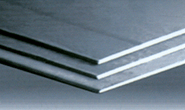Government/Policy

April 4, 2022
Commerce Continues CVD on CTL Plate From South Korea
Written by Michael Cowden
The US Department of Commerce has decided to continue countervailing duties of 4.35 percent on cut-to-length steel plate from South Korea.
“Commerce determines that revocation of the (duty) Order would be likely to lead to continuation or recurrence of countervailable subsidies,” according to an entry in the Federal Register dated Friday, April 1, 2022.
![]() The decision stems from a “sunset review” initiated on December 1, 2021.
The decision stems from a “sunset review” initiated on December 1, 2021.
Sunset reviews, conducted every five years, require US trade officials to decide whether duties should be extended or allowed to lapse (i.e., to sunset). In practice, the sun rarely sets on steel duties.
Commerce on March 30, 2017, implemented countervailing duties – also known as CVDs – to offset alleged subsidies US trade officials said South Korean steelmakers benefitted from. That decision was part of a broader trade petition aimed at plate producers in nearly a dozen nations. South Korean plate is also subject to anti-dumping duties of 7.39 percent.
The department in 2016 and 2017 decided a wave of trade petitions covering all major flat-rolled steel products – hot-rolled coil, cold-rolled coil, coated product, and plate – in favor of domestic mills. Sunset reviews of all of them are likely to be completed this year.
The CVD continuation matters because South Korea is the second biggest player in the imported plate market behind only Canada.
The US imported 470,730.8 metric tons of cut-to-length plate in 2021, according to Commerce Department figures. Canada accounted for nearly 44 percent (205,577 tons) of that total and South Korea for roughly 42 percent (199,280.1 tons).
Sweden, home to Swedish steelmaker SSAB, was a distant third at about 5 percent (23,236.8 tons). No other nation shipped more than 20,000 tons of cut-to-length plate to the US last year.
South Korea is exempt from Section 232 tariffs of 25% because it agreed to a quota in exchange for exemption from the national security duties put in place by the Trump administration in 2018.
Steel Market Update does not carry prices for imported plate. Domestic plate prices – unlike sheet prices, which plunged and then surged sharply upward – have been stable at high levels all year.
SMU’s plate price stood at $1,845 per ton ($92.25 per cwt) when this article was filed, up 1.4% from $1,820 per ton in early March and up 3.4% from $1,785 per ton in early January, according to our interactive pricing tool.
By Michael Cowden, Michael@SteelMarketUpdate.com







